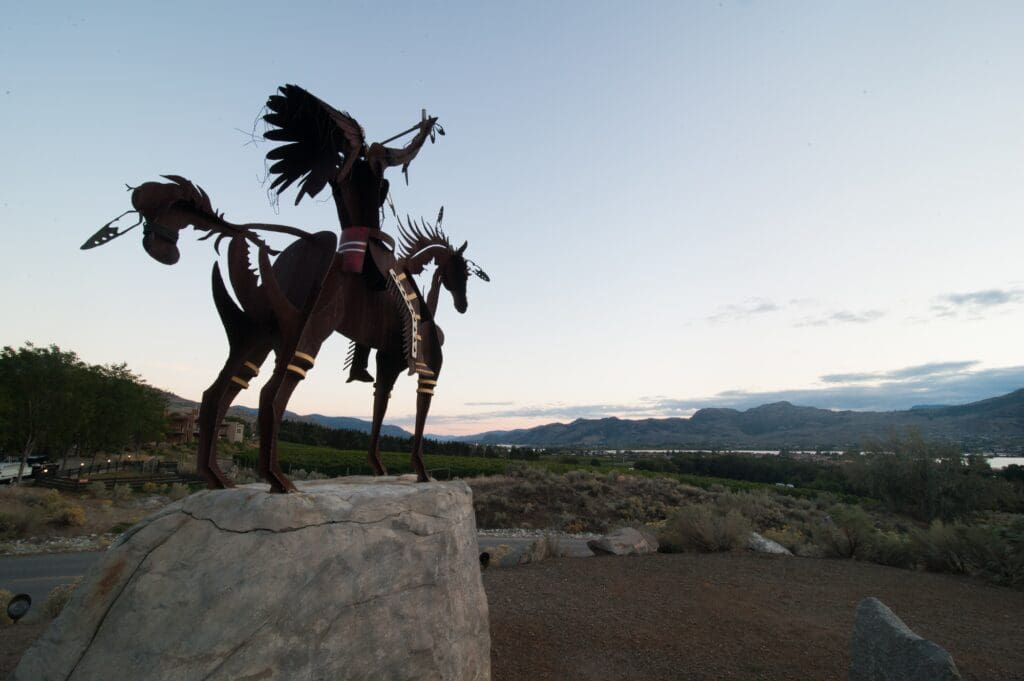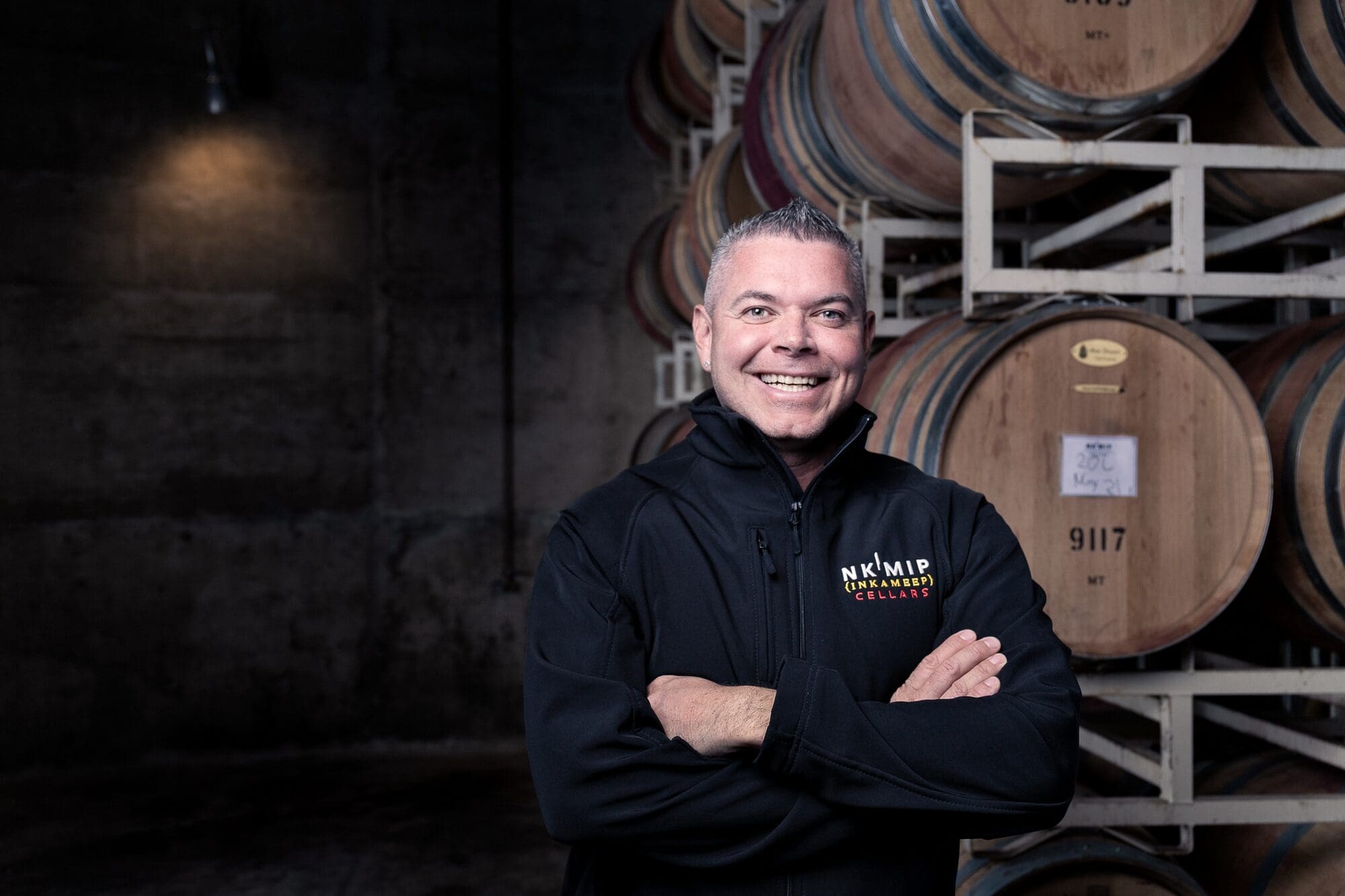Founded 20 years ago by the Osoyoos Indian Band, Nk’Mip Cellars has a unique approach to winemaking that connects Indigenous history to a deep relationship with the land. Estate Winemaker Justin Hall grew up in Osoyoos, B.C., where the vineyards and winery are based. We chatted with him recently. —Catherine Dunwoody

When did you join the winery?
I first joined Nk’Mip Cellars after graduating from high school. After only a few days on the job as a cellar hand, working alongside former Senior Winemaker, Randy Picton, I was hooked. I completed my certificate in the Winery Assistant and Viticulture program at Okanagan University College, and then went to Australia and New Zealand to gather experience and complete a post-degree in Enology and Viticulture. I returned to the winery in 2009 as Assistant Winemaker and grew to Estate Winemaker.
What drew you there?
Focusing on the land and being in touch with the nature of our region influences all of the decisions I make, big and small, when it comes to caring for the vines and developing Nk’Mip wines.I grew up in the Osoyoos community. I actually sat on the council for a term, which really put me in touch with the experiences and lives of the people and businesses here. But it wasn’t necessarily the same as being in touch with the land. To be in touch with the land, you have to be out in the land.Being in the winery is a lot of fun, but I love going out in the vines and seeing the soils. You can learn a lot about winemaking in university, as I did, but to really create a good wine, you have to be out in the land; you have to be out in the weather. You have to understand what the vines are going through, be close to them, read them. You need to know and experience firsthand what the rain feels like, how the canopy is growing and if these things are stressing out your vines. If your vines are stressed, the flavours they produce are going to be different. You can really, really learn a lot just by paying attention to nature.
How does the Indigenous connection to your land contribute to the viticulture at Nk’Mip?
The Okanagan First Nations have a legacy of practicing agriculture and protecting the land. Back when we were tribes that practiced hunting and gathering, it was extremely important that you gave back whatever you took from the land. We never want to strip the land of its resources, and that’s something we continue to believe in. At Nk’Mip, we don’t practice grape growing, we practice sustainable wine growing. This means we grow in smaller batches, and we do so purposefully with great respect for the land. We don’t throw tons of fertilizer at the earth or spray it down unnecessarily; we don’t eradicate bugs or weeds or other living things. We want our grapes to thrive in a healthy ecosystem without impacting the wildlife that surrounds it. We would never want a deer or bear travelling through our vineyard to become sick from the way we are treating our vines. If you strip the soil, it will suffer over time. When I retire, I want to make sure whatever I’m growing and the soils it grows from are left in the same condition. What I’m doing today, I want my son to have the opportunity to do—I want to make sure he has the ability and opportunity to continue to grow on this land without it being destroyed and pillaged.
Do you feel most people know that this winery is Indigenous owned? How do you tell that story so consumers know more?
We are extremely proud of our Indigenous heritage and this is very much part of our identity. We highlight our traditions and culture to customers who enjoy our wines and to those who visit our property in Osoyoos. We share about the Osoyoos people and the special place we are located through winery tours and through our gastronomy, at our patio restaurant. Visitors are also encouraged to learn more by visiting the Nk’Mip Desert Centre just a short walk away from our tasting room.
What wines are you most proud of this season? And what can we look forward to in 2023?
I am very proud of how our Syrah turned out this season. It’s spicy, soft and has really nice tannis. The wine has great complexity and good body, Syrah is something British Columbia produces really well. It’s a wine that anyone can enjoy.

Be the first to comment